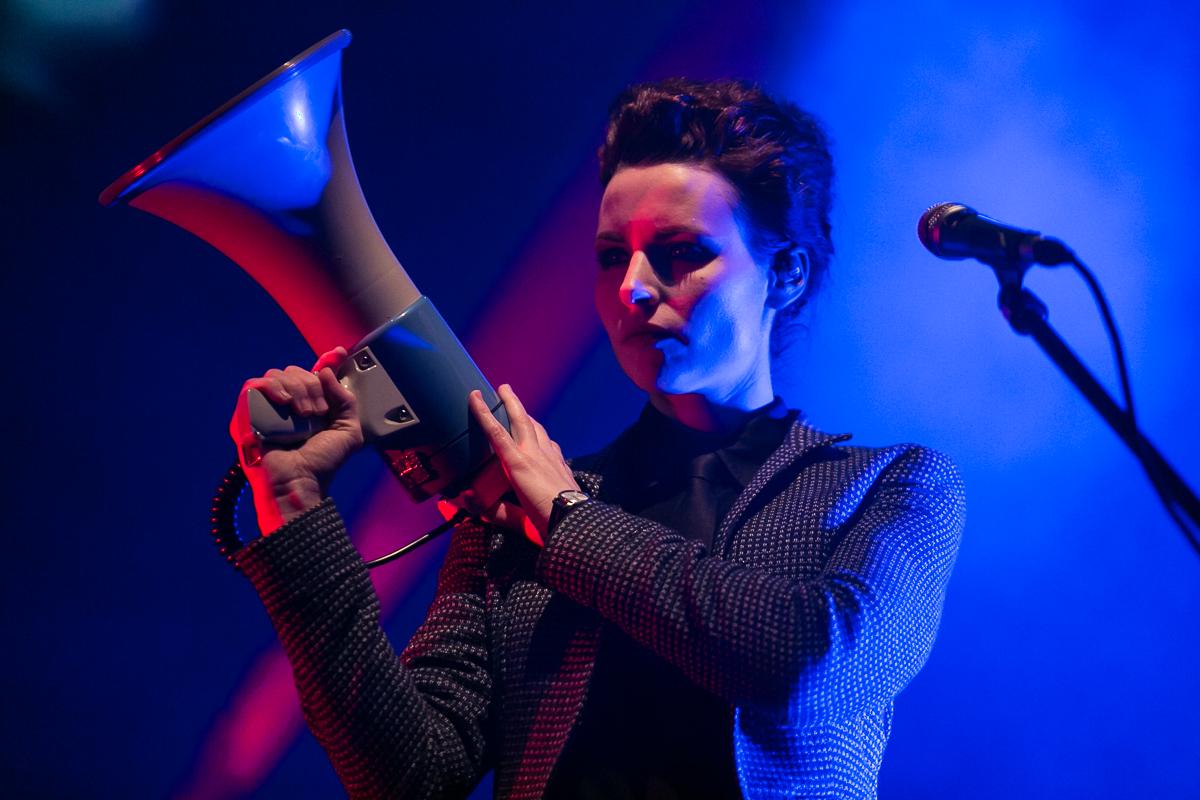

"
Their concert at the Križanke venue in May, when they introduced their new album Spectre, was sold out. On the 21st of November they kicked off their tour across Slovenia, entitled Napravimo to deželo spet sproščeno! (Let's make this country relaxed again!). Kamnik, Škofja Loka, Novo mesto, Maribor, Gorica, Lendava and Celje will be the key stops of their tour, while the Slovenian capital can yet again look forward to something special.
On the 29th November they'll be coming to Kurzschluss, the first ever pop-up club in Slovenia. The restless club, from which visitors walk away only with a memory, has managed to put together an even bigger program compared to last year. In only a few days the club will be offering a unique experience in an almost festival-like atmosphere. Laibach will join forces with Anja Rupel, Boris Benko (Silence), Aldo Ivačič and special guest Daniel Miller - a master of electronics. Miller is also the head of the Mute publishing house, which has been behind Laibach's albums since 1987.
But Laibach' connection to the club venue goes back a long way. If you ask Novak, the band members hold special memories to this place owned by the Slovenijales company. "I remember the place because very important concerts took place in the room next door. That was in the 80's, when Slovenia's urban scene was being formed. The first concert of Einstürzende Neubauten Test Department in Slovenia took place there. Those concerts were extremely important for the culture of that time," says Ivan for MMC.
Throughout the years Laibach has remained to be a rare musical link which deals with elements that go beyond music. That was after the hippy movement in the 60's, after the punk movement in the 70's, the New Wave of the 80's and after the pop music of the 90's, when music lost its social context and stopped dealing with content.
"Music is never merely music. The same goes for popular music. There's always an ideology behind it, no matter how much musicians try to hide it. If they say »we are only entertainers« it's never just that. Each public statement is a "statement" which hides a wider content. We just have to be able to read it."
"Music is our gospel. We strive to place into Slovenia's many cultural spaces. There is Lendava, for example, which is distinctly different from Koper. There's Celje, which is different from Kranj. In each of these places there is a certain type of population which is susceptible to our music and performance. However Ljubljana is always too far for them and some of them don't even go to clubs anymore. So why not treat them with a "home delivery" service in a nearby theater. If the Modrijani folk-pop ensemble can spread their gospel all over Slovenia, why wouldn't Laibach do the same."

































































